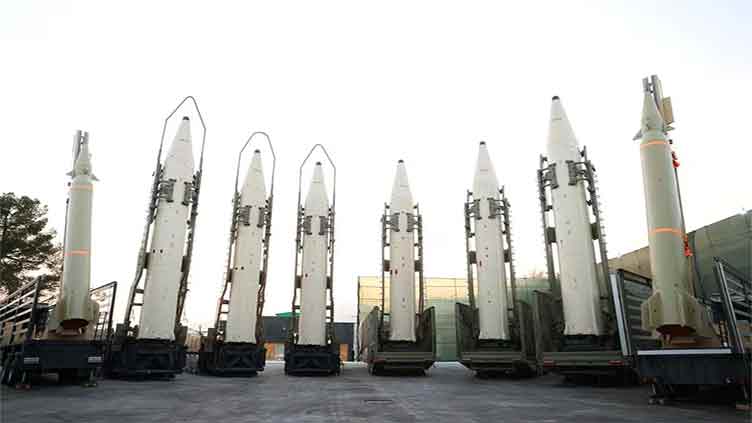Exclusive: Iran sends Russia hundreds of ballistic missiles

World
Exclusive: Iran sends Russia hundreds of ballistic missiles
DUBAI (Reuters) - Iran has provided Russia with a large number of powerful surface-to-surface ballistic missiles, six sources told Reuters, deepening the military cooperation between the two U.S.-sanctioned countries.
Iran's provision of around 400 missiles includes many from the Fateh-110 family of short-range ballistic weapons, such as the Zolfaghar, three Iranian sources said. This road-mobile missile is capable of striking targets at a distance of between 300 and 700 km (186 and 435 miles), experts say.
Iran's defence ministry and the Revolutionary Guards - an elite force that oversees Iran's ballistic missile programme - declined to comment. Russia's defence ministry did not immediately respond to a request for comment.
The shipments began in early January after a deal was finalised in meetings late last year between Iranian and Russian military and security officials that took place in Tehran and Moscow, one of the Iranian sources said.
An Iranian military official - who, like the other sources, asked not to be identified because of the sensitivity of the information - said there had been at least four shipments of missiles and there would be more in the coming weeks. He declined to provide further details.
Another senior Iranian official said some of the missiles were sent to Russia by ship via the Caspian Sea, while others were transported by plane.
"There will be more shipments," the second Iranian official said. "There is no reason to hide it. We are allowed to export weapons to any country that we wish to."
U.N. Security Council restrictions on Iran's export of some missiles, drones and other technologies expired in October. However, the United States and European Union retained sanctions on Iran's ballistic missile programme amid concerns over exports of weapons to its proxies in the Middle East and to Russia.
A fourth source, familiar with the matter, confirmed that Russia had received a large number of missiles from Iran recently, without providing further details.
White House national security spokesperson John Kirby said in early January the United States was concerned that Russia was close to acquiring short-range ballistic weapons from Iran, in addition to missiles already sourced from North Korea.
A U.S. official told Reuters that Washington had seen evidence of talks actively advancing but no indication yet of deliveries having taken place.
The Pentagon did not immediately respond to a request for comment on the missile deliveries.
Ukraine's top prosecutor said on Friday the ballistic missiles supplied by North Korea to Russia had proven unreliable on the battlefield, with only two of 24 hitting their targets. Moscow and Pyongyang have both denied that North Korea has provided Russia with munitions used in Ukraine.
By contrast, Jeffrey Lewis, an expert with the Middlebury Institute of International Studies at Monterey, said the Fateh-110 family of missiles and the Zolfaghar were precision weapons.
"They are used to point at things that are high value and need precise damage," said Lewis, adding that 400 munitions could inflict considerable harm if used in Ukraine. He noted, however, that Russian bombardments were already "pretty brutal".
U.S. AID DELAY WEAKENS UKRAINE'S DEFENCES
A Ukrainian military source told Reuters that Kyiv had not registered any use of Iranian ballistic missiles by Russian forces in the conflict. The Ukrainian defence ministry did not immediately reply to Reuters' request for comment.
Following the publication of this story, a spokesperson for Ukraine's Air Force told national television that it had no official information on Russia obtaining such missiles. He said that ballistic missiles would pose a serious threat to Ukraine.


